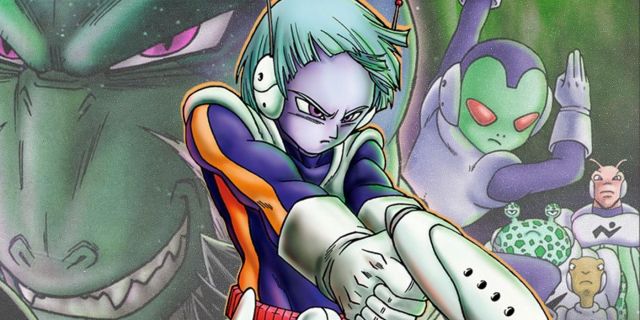Death doesn’t have as much weight in Dragon Ball as in other series. The eponymous wish-granting orbs can be used to bring back anyone met with an untimely demise. The end of Dragon Ball Z even ensured that multiple people could be brought back as many times as need be. This could be why so few people in Dragon Ball Super ever die in the first place; the only ones who have needed to be wished back so far are Piccolo and the defeated universes of the Tournament of Power. Such constant circumvention of death has removed almost all sense of tension or stakes from the Dragon Ball franchise.
The way death is handled in Dragon Ball is part of what makes Merus’ end so frustrating. It’s not unexpected, but the way it was framed made it sound like even the Dragon Balls couldn’t bring him back. It would have been a rare opportunity for the franchise to invoke a permanent death that would have meaning behind it, but it was utterly skipped.
Why Was Merus Erased If He Was Just Going to Be Brought Back?
The Angel sacrificed himself in DBS Chapter 63, “Merus’s Resolve.” To give Goku a chance against Moro, he destroyed the planet eater’s gems so he couldn’t absorb anyone else’s powers. Doing this broke the Angel code of neutrality and forced him out of existence.
Merus’s sacrifice is essentially DBS’s equivalent to Android 16 sacrificing himself so Gohan could become a Super Saiyan 2. Not only did it handicap Moro, but it also gave Goku the motivation he needed to perfect his Ultra Instinct and win the fight. If Merus had also stayed dead, it would have completed the similarities in all the right ways.
Merus’s resurrection is especially frustrating because it didn’t seem like it could be undone, at least not easily. While the Dragon Balls can bring people back from the dead, it hasn’t been confirmed whether people can be wished back into existence. The only Dragon Balls confirmed powerful enough to undo erasure are the Super Dragon Balls, but even the Dragon Team would have trouble gathering those. If it were up to Goku and the gang, the Angel would have probably been left to his fate.
Unfortunately, a new method for saving Merus was introduced at the end of the Galactic Prisoner Saga. At the request of Shin, the Grand Minister revived Merus on the condition he comes back as a mortal. This is a fair enough trade-off, but it still cheapens the impact of the Angel’s erasure. This seemingly fair trade-off comes at a great cost to the story.
Merus’s revival cheapens the emotional impact of his initial disappearance. Seeing the Angel disappear motivated Goku to find the resolve to push past his limits. Merus coming back means Goku has no reason to commit to that resolution.
Does Merus’s Erasure Have Any Meaning?
There are only two ways the Angel’s erasure can mean anything anymore. One way is if Merus returns later in the series, which has yet to happen. Establishing this rule could also be used as foreshadowing for another Angel sacrificing themselves, but even that doesn’t matter anymore. This arc has thoroughly proven that Angel’s erasure is a meaningless plot point because it has no permanence.
Merus’s death might as well have never happened. It had the potential to separate itself from the rest of modern Dragon Ball for once and blew it. Just because deaths are constantly undone in the series doesn’t make it any better.















Leave a Reply